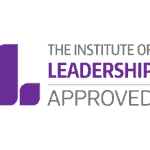A quick search online will show that dozens of studies spanning decades continually highlight the importance of Emotional Intelligence in the workforce, and more recently, The World Economic Forum predicted that 42% of current core skills will be outdated by 2022, and that ‘Emotional Intelligence, leadership, and social influence’ will see an outsized increase in demand.
Let’s take a look at what Emotional Intelligence is and FIVE ways that managing emotions in the workplace can make for a thriving workforce…
What is Emotional Intelligence?
Very simply, Emotional Intelligence (EI), is how well we understand our emotions and the emotions of others.
The emotions that we feel everyday strongly influence what we think and how we behave.
Have you ever woken up to a text that’s left you feeling grumpy, happy, hopeful or despondent? That emotion sets a precedent that can then stay with us throughout our day.
We take action (or inaction) based on how we feel and our thoughts become tainted by these emotions too. One swift emotional reaction in the morning can mean either our whole day is ruined or that we walk around feeling elated and like nothing can touch us.
These interactions, between our emotions, thoughts, and behaviours are fundamental in so many aspects of our lives such as the habits we form, the opinions we make, and the friendships we choose.
Why is managing emotions in the workplace important?
Every team is made up of individuals who are busy processing their own emotions whilst bouncing up against other people’s emotional energy all day, everyday.
Recognising and acknowledging these processes can lead to some extremely valuable insights which in turn can be used to maximise the potential in your workplace.

1. Create a more cohesive team
Let’s face it, we’ve all had teammates that we don’t exactly play well with. And, if we’re lucky, we’ve also had teammates that are a pleasure to work with – ideas are plentiful, work flows, and the office hums with the satisfaction of motivated staff.
Some of this is down to luck of the draw and / or the type of profession we have chosen for ourselves and whether this suits our personalities.
BUT, a lot of this can also be skilfully cultivated by a leader with strong EI.
A leader with high EI can recognise combinations of people that work well together and get the best results.
And taking the time to connect each member of your team to tasks and responsibilities that best suit them will drive further success.

2. Fuel positivity
It’s an old cliché but ‘smile and the world smiles with you’ is particularly apparent for managers.
People in leadership roles have people looking to them all day long and the emotions that they project can have a huge impact on the work environment.
Imagine walking into a team meeting after a bad quarter. Is this a moment for dismay or can the energy be shifted to an excellent opportunity for improvement? A leader strong in EI can develop and maintain a flow of positive emotions and will keep teams buoyant through the bad times.
This is going to be especially true post-covid. Our teams are going to have a lot of questions, concerns, and fears. A daunting work environment for even the most experienced leaders.
A manager with strong Emotional Intelligence can flip this to instead invite ideas, develop an open and inclusive environment, and consolidate a feeling of security and positivity at work.

3. Stay on target for shifting goals
There’s no denying that 2020 has seen unprecedented procedural changes in the workspace for every single industry. Here in the UK, we’re also managing the effect of Brexit.
What we need to do and how we need to do it has changed for all of us beyond recognition, from spending time with colleagues in the office, to now working from home between the cat and a mountain of homeschooling.
Emotionally Intelligent leaders are able to review and analyse their own and their team’s emotions and then capitalise on the information that comes from that.
Emotionally Intelligent leaders also tend to have a better use of vocabulary, ensuring that members of their team not only understand what they have to do, but why they have to do it.
And it can be argued that EI is even more critical when managing your team from afar. When we’re used to 8 hours of exposure to our teams in an office, picking up on those emotional reactions via zoom in a one hour conference call is going to be even more vital.

4. Manage Conflict
Leaders with high EI are more able to diffuse conflict before it becomes an issue.
Conflict usually arises from a sense of frustration that someone else cannot see or accept things from our point of view. With EI, one can help identify, articulate, and manage these feelings of frustration before they bubble over.
Not just that, but once the source of conflict has been identified, the solution is often close to hand and almost inevitably leads to greater understanding about ourselves and our team members (circle back to point 1 on team cohesion!).
Conflict is normal and arguably inevitable in a team, but an emotionally intelligent leader can use this as an opportunity to build trust and foster an open environment. All great things.
5. A winning strategy
Keeping that energy focused, forming a streamlined strategy, and getting your team on board is all much easier when you are equipped with the right tools.
Support your team and power up those core skills that make you the best manager you can be with our 12-month Management Development Programme.



